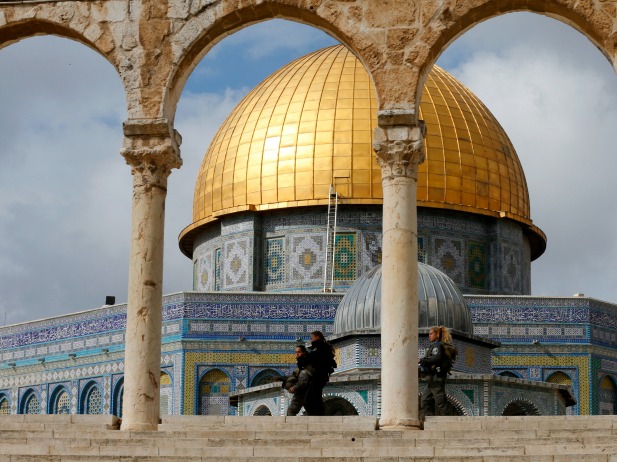In April of 2021, the United States government announced its withdrawal from what was at the time the Islamic Republic of Afghanistan. Twenty years of combat, 3609 dead NATO troops, and trillions of dollars later, Allied forces withdrew, and left the country vulnerable for the Taliban to seize control once again, like they had thirty years prior. However, NATO’s cause in Afghanistan is not yet dead, and 20 years of democratic rule are not easily discarded, regardless of what the new government has to say.
After their seizure of the capital, the Taliban regime made many promises concerning their goals going forward, including objectives such as the maintaining of rights for women, continuing to uphold freedom of the press, and granting amnesty to officials from the government of the Republic. None of these promises saw any follow-through from the new government, and many of them shortly proved to be blatant lies. Women’s rights within the nation have seen a sharp decline, with the government returning to the policies of the previous regime, seeing women almost entirely removed from public life. Despite the new regime having proclaimed a general amnesty for members of the previous government, there have been a large number of revenge killings against members of the former government, particularly of the military. Additionally, there has been widespread suppression of the media. The Taliban continues to rule through fear, with public broadcasts of executions and flagellations of criminals being used to send a clear message to citizens as to the consequences of acting outside of the newly established rules.
Factors such as these, as well as the turbulent period of adjustment, have led to widespread protests throughout the country. However, civilian resistance has failed to affect any of the Taliban’s positions, and has seen violent retribution from those in power. The authorities have continually refused to tolerate any criticisms of their actions, and have doubled down, vowing to start stoning women to death in public and to continue their war against Western democracy.
All of these developments, as well as the fundamentalist nature of the Taliban, have seen a rise in resistance organisations throughout Afghanistan. These groups are largely divided by regional and ethnic grounds and their motivations for combatting the Taliban regime vary wildly. However, there is one primary group currently dedicated to opposing the Taliban regime, the National Resistance Front of Afghanistan. The organisation is led by Ahmad Massoud, the son of the former leader of the Northern Alliance, his executive team, and members of the former government of the Islamic Republic of Afghanistan, and it is currently grasping at straws in order to secure support for the resistance movement. It differs from many of the other current resistance groups through its insistence on equality and being representative of all ethnic groups in the country. The NRF is highly decentralized and operates primarily in northern Afghanistan, where the Taliban’s control is looser, but it has thus far found it difficult to expand its operations without foreign support.
Of all of the current Afghani resistance groups, the NRF has the greatest degree of international recognition and the most promising capacity to achieve its stated objectives. According to Ali Maisam Nazary, their head of foreign relations, those objectives are aimed towards the establishment of a democratic, decentralized Afghanistan with equal rights for all. It is interested in empowering the provinces and districts of the country, which in its view is the most realistic form of democracy for the nation. Critics have argued that the NRF’s proposed policies would lead to legally enforced ethnic divides in the region, though the NRF counters that federation or confederation are both forms of governance that would succeed under their stated objectives, without any splitting of the country on ethnic grounds. At this time, it is difficult to assess the likelihood of a self-governing democratic Afghanistan coming to pass as the previous attempts at democratic governance were all supported by larger powers. However, as local resistance groups such as the NRF were crucial to the USA’s success during their 2001 invasion and the longevity of the Republic that came in the wake of it, it has a history of successful involvement in the occupation and governance of Afghanistan that works to its credit.
The issue at this juncture lies in the fact that all anti-Taliban groups within Afghanistan are currently operating with little to no foreign support, a fact that has to change should they ever become capable of being more than a thorn in the Taliban’s side. As of now, the existing organisations are just barely getting by, with the NRF, again, being the most notable due to its breadth of operations and ability to interoperate with other groups. However, without foreign support the most they can manage is small-scale, guerrilla attacks on the Taliban. At this moment in time, they lack the resources needed for a larger-scale strategy and are doomed to slowly either fade out or become a minor presence in Afghanistan, stuck in the regions of the country where the Taliban have yet to consolidate power. Currently, without any backers or legitimacy, they cannot form a meaningful opposition to the continually oppressive regime, and are more likely than not to slowly die out as the de facto authorities become increasingly entrenched in their position.
If Afghanistan is to have any hope of restoring a form of democracy, it is necessary to provide the resistance movement with tangible support. A large-scale intervention in the country is not feasible, and based on historical precedent, is unlikely to succeed regardless. As established earlier, at this time, there are a number of local groups all with some claims of legitimacy and experience with governance interested in overthrowing the new regime and restoring Afghanistan to democratic rule. Additionally, the Taliban is currently facing infighting between the Kandahar leadership in the south of the country and the Haqqani network, which currently controls most of Kabul. These factors have created a window of opportunity for meaningful intervention through provisions of supplies to resistance groups in the country that is unlikely to come again after the Taliban is given time to consolidate their control over the country. Such assistance would go a great length towards assuring the Afghani peoples that they are not being abandoned, and would greatly strengthen both the tactical and strategic capabilities of resistance groups in the country. As such, it is imperative to either act now, or accept that the troops committed during the struggle for Afghanistan died in vain.
Photo: A coalition force member conducts security during a mission that arrested a Taliban leader in Arghandab district, Kandahar province, Jan. 28, 2013. The detained Taliban leader was responsible for the planning and execution of vehicle-borne improvised explosive device (VBIED) and IED attacks against Afghan and coalition forces. Prior to his detention he was planning an IED attack targeting Afghan civilians. (2013), by Pfc. Travis Jones via https://www.dvidshub.net/image/862894. Public Domain.
The appearance of U.S. Department of Defense (DoD) visual information does not imply or constitute DoD endorsement.
Disclaimer: Any views or opinions expressed in articles are solely those of the author and do not necessarily represent the views of the NATO Association of Canada.




